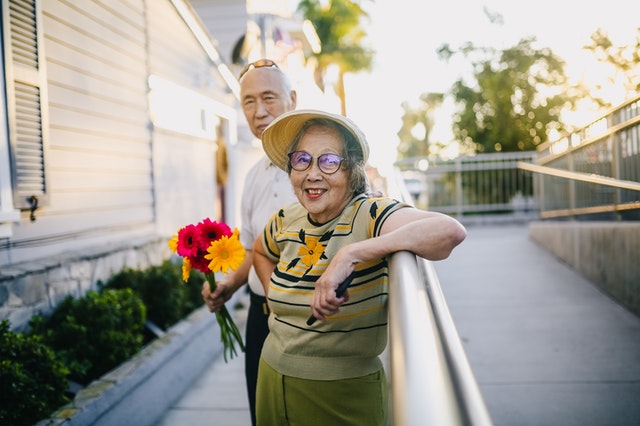The process of providing health care for the elderly is difficult, But it is not impossible, as the caregiver of the older is required to accept the strange and difficult lifestyle, and to deal with obstacles smoothly, as the older people may have a feeling that their usefulness has become non-existent, and this matter may generate frustration for them.
Therefore, the provision of certain tasks performed by these Elderly people can make them feel positive energy and achievement, and in the case of changing the place of residence for the elderly, this matter is a dilemma that requires dealing with it properly, therefore, this article will deal with the most prominent methods of caring for the elderly. In addition to methods of dealing with the elderly Those who refuse the care provided to them.


The most prominent ways of caring for the elderly Some elderly people may find it difficult to self-care, so those close to them must intervene and provide some assistance, and this help needs to assess their actual needs, determine the matters that should be intervened, and provide the necessary support to them Through it, and in case of inability to provide this assistance.
The elderly should be connected to care organizations or home care service providers for the elderly, knowing that providing care for the elderly is difficult, so some should make sure that they spend enough time to meet the needs of the elderly and learn about the most important methods Care for the elderly.
Care for the elderly at home helps to work with a group of relatives in assessing the needs of the elderly before providing care to them, and to identify the quality of care that the elderly need the most.
Among the most important methods of caring for the elderly at home are the following: Talk to them and spend time with them, Work with a physician to determine their health needs.
Support in the event that it is difficult for them to control some tasks, such as feeding themselves, dressing, or taking medicines, and financial support should be provided to them, especially since most of them lose their work.
Make them as involved in the nature of their care as possible; To help them achieve a sense of independence and that they are still in control of their decisions. Listening carefully to their feelings and needs, and making sure that they do not reject the nature of the care provided to them, as this reduces their fears about their fate in care.
Providing the vital corners of the house that the elderly need with safety equipment, such as anti-slip in the bathroom, seats under the bathroom shower, improving lighting for dark areas.
Help them do exercises and stimulate them as much as possible, and you can spend time with them to comfort them during these exercises, as they should do 150 minutes of exercise a week.
Encouraging them to visit and socialize.
Elderly care in the hospital: Hospital staff can be asked about the real needs of the elderly, as many elderly people experience fear and frustration when they are in the hospital for a certain period, and among the most prominent ways of caring for the elderly in the hospital are the following: Some questions can be asked to doctors or nurses to make sure the elderly need care by determining The nature of this assistance, and among these questions: The length of their stay in the hospital.
What are effective treatment options? What are the ways to get rid of their emotional and physical pain?
Talking with the elderly about the extent of their ability to be treated in the hospital, and involving them in their fateful decisions, such as their acceptance of an operation. Express them when they are unable to express themselves, and talk about their desires for optimal care.
Providing them with basic daily necessities, such as grooming tools, warmth or a comfortable blanket and bedding and other daily necessities. Visit them on an ongoing basis and not be interrupted.
They must also be assisted in carrying out their duties that they are unable to perform, and making sure of their discharge date, and planning for the after-hospital. Methods of dealing with elderly people who refuse care.
Some elderly people may refuse any form of care provided to them, so it is the duty of people close to them to help them receive appropriate care, and after talking about the most prominent ways of caring for the elderly, the methods of dealing with elderly refusing care will be clarified as follows: Establishing a temporary period of care: This period helps the elderly to decide whether they would prefer some help to them or not.
Description of the nature of the care: Describing the care provided to them, and explaining its nature, helps them in making a decision and accepting this help with greater psychological comfort.
Seeking help from close people: Some close to the patient may help make the life of the elderly person and the life of the person who wants to help the elderly better, especially after finding a compromise for both parties and contributing to improving their mental health.
Statement of the financial situation: Some elderly people may fear the idea of care due to their fear of financial costs, so they should be reassured about this as much as possible.
Avoid causing problems in front of the elderly: Some must make their efforts not to cause problems related to the care of the elderly with relatives in front of the elderly himself.



